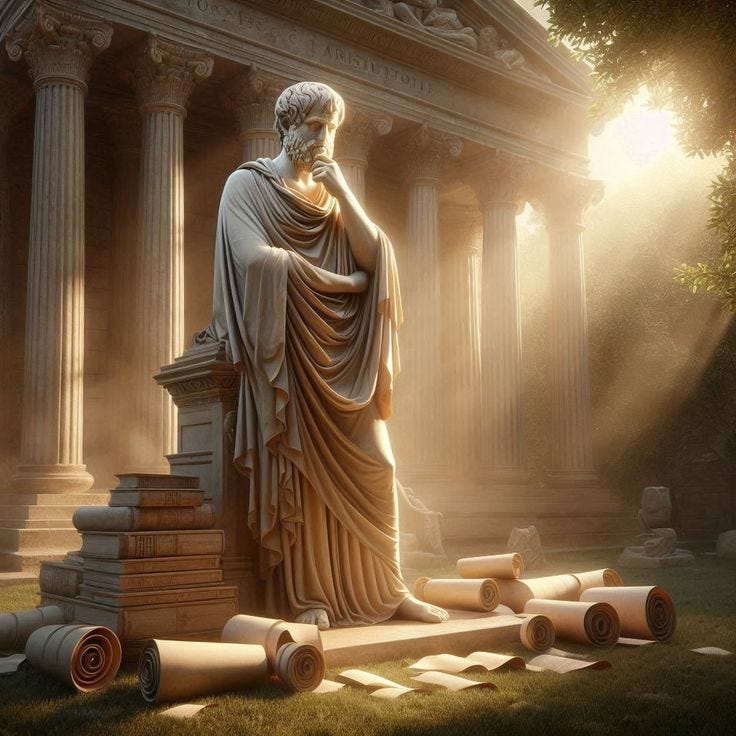A few years ago, I began attending a philosophy club. My sister, a regular attendee, suggested it, knowing how often our conversations meandered into philosophical territory. She thought I would enjoy it, and she was right.
The club was a wonderful experience. It offered an outlet for the types of conversations that rarely come about in everyday life. Discussions often got heated, as participants defended against attacks to their precious worldview, and launched counters of their own in response.
But that is the nice thing about philosophy, and debate in general. You are there to be tested. You are there to have your worldview challenged to see if it holds up under scrutiny.
It was during this time that it became clear to me just how inescapable philosophy truly is. No matter what someone considers himself to be—empiricist, materialist, Kantian, or idealist—everyone has a philosophy of life. The minute we begin to claim one way of doing things is better than the other, or that the universe is this way or that, we are practicing philosophy.
One result of modern education, however, is that most are unaware of this inescapability. Most, when thinking about philosophy, imagine stuffy scholars sitting in their armchairs, smoking pipes and rattling on about metaphysics and whatnot.
This is untrue; well, the metaphysics bit might be true, but philosophy is not reserved for old scholars. It is the birth right of man himself. Man, Will Durant says:
“must make up his mind whether this earth is the work of a designing intelligence, or the unguided struggle of molecules and morons to avoid an inevitable death. He must make up his mind whether he is a machine cohabiting with another machine for the generation of baby machines, or, the exuberant vehicle of some elan vital, the possessor of a certain creative spontaneity, the transient crucible of a divine fire. He must make up his mind whether the precarious processes of reason, or the majestic. immediacy of "intuition," shall be his guide to reality and his test of truth. He must make up his mind whether he shall be faithful to his wife, or undertake a more expensive distribution of his energies.”1
Durant's observations highlight the universal questions we all grapple with, whether consciously or unconsciously—a stark contrast to the misconceptions many hold about philosophy today.
We can, as reasonable, cultured, 21st-century people, attempt to ignore these questions and continue about our day. But this does not make them go away.
And here is my main point: we all intrinsically have answers.
Everyone has a slight feeling or opinion about the nature of man, reality, and the relationship between the two. The difference between a life well lived and not is the manner in which we pick apart and analyse these opinions.
In other words, how much we philosophise.
It is when we begin pulling on the strings of our understanding, that deeper awareness and heightened perception become untangled within our intellect—this de-knotted intellect is the philosopher's tool for shaping character and life.
For example, In the Platonic dialogue Philebus, Socrates is debating with Philebus about what the highest good of life is. The two contenders being intelligence or pleasure.
Philebus (translated Loverboy), argues that hedonistic pleasure is the ultimate good, and thus demands unwavering pursuit. Socrates objects that a life of intellectual activity, one that ignores the pleasures of the body and focuses solely on ones of the mind, is infinitely preferable. They conclude that a life that contains some of the two is best, but that the intellect should always guide enjoyment of bodily pleasures.
Now, regardless of whether or not one considers themself a philosopher, one has an opinion on the topic of the above dialogue. And if a man claims he does not, I would need only to look at his life to get my answer. Does he indulge every impulse that arises in him? Or does he temper these impulses in order to maintain the health of his body and the structure of his life?
We cannot escape philosophy. And not only is this divine art not exclusively reserved for scholars, but the intentional engagement with life's most important questions opens up life to the enquirer in ways that escape words, and must be experienced firsthand.
To close, I invite you, dear reader, to reflect on your philosophy of life. What are your answers to the questions posed by Will Durant and Socrates? And have you pulled at the strings of understanding that led to these conclusions? Thank you for reading.
Will Durant, Adventures in Genius, Chapter 1: Behaviorism and Philosophy, p386




